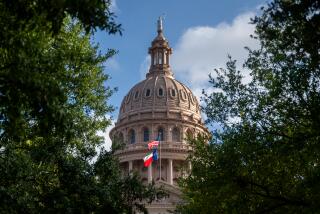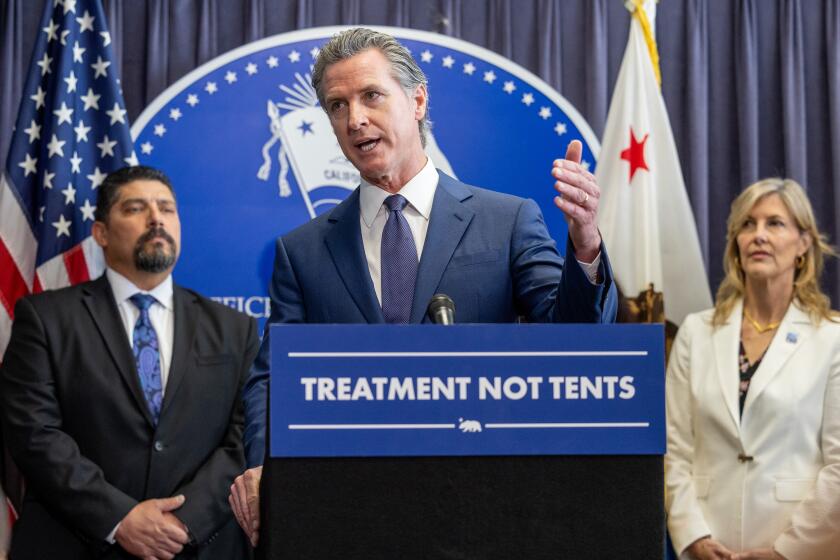Politics? We’ll take good cheer
There’s been a lot of hand-wringing over the spectacle of presidential candidates campaigning during Christmas thanks to the front-loaded primary schedule. But I like it. It provides a nice reminder of how unimportant politics really are
Think about it. Most of these candidates insist that this is the most important election in our lifetimes. (Funny how they say that every four years.) But if you’re remotely normal, you haven’t spent two minutes in the last few days fretting over Hillary Clinton’s healthcare plan or Mitt Romney’s scheme for securing the border.
You may be short on cash, but you probably haven’t set aside time to ponder Mike Huckabee’s 23% sales-tax proposal. If you live in Iowa or New Hampshire, you might have been moved by John McCain’s POW-at-Christmas TV ad. You might have thought about how nice Barack Obama’s family seems. Beyond that, you probably wish they’d all just shut up.
In short, the grandeur of the season diminishes all of the candidates because it reminds us of the smallness of their trade.
Washington pundits and politicians have a habit of equating America’s collective political mood with our feelings about our own lives. When Americans say the country is “on the wrong track” -- as three-quarters of us now say -- the pundits proclaim that Americans are in a “funk” or a “sour mood.” When approval ratings for Congress or the president are in the toilet, news reports call Americans “angry” and the climate “poisonous.” But walk along any American Main Street during Christmas week and you’ll find the atmosphere is hardly poisonous, the mood far from sour.
Obviously, dissatisfaction with the government is hugely important in political terms, and politics are significant. But Washington needs to get over itself. Very few people define their lives politically -- a fact for which we should all be eternally grateful.
Imagine if the consumer research division of McDonald’s found that a majority of Americans were dissatisfied with the golden arches or felt that the fast-food industry was on the “wrong track.” It wouldn’t occur to anyone at Hamburger University to conclude that Americans were in a foul mood. So when voters say they’re unhappy with one or another branch of government, why does that mean that Americans are in a bad mood?
It may rate higher than Big Macs and Happy Meals, but politics still accounts for only a fraction of our lives. In Iowa, where residents are told every day for a year that the fate of the world hangs on their vote, fewer than 1% of the population attends the caucuses. And Iowans are supposed to take “the process” extremely seriously.
No wonder then that an extensive poll conducted by the Associated Press and Yahoo News in November found that although 77% of Americans said they believed the country was heading in the wrong direction, 66% said they were personally either very happy or somewhat happy. Only 18% said they were unhappy.
I have much more direct interaction with my local government -- that of the District of Columbia -- than I do with the feds. And you know what? I have loathed City Hall from the time I moved here on Marion Barry’s watch to today. And yet these have been the best years of my life. I grew up in crime-ridden, high-tax, drug-addled, blackout-plagued New York City, when every day seemed to bring the place closer to collapse. Getting mugged every now and then was simply the price you paid for walking to school. And yet I look back on my childhood and smile.
The burgeoning field of “happiness studies” tells us that happiness is a peculiar state of mind, surprisingly immune to government or economic manipulation. USC economist Richard Easterlin first observed this more than 30 years ago. In 1947, 42% of Americans told a pollster they were very happy. In 1970, despite the fact that the average American family was 60% richer, the share of Americans reporting they were very happy had ticked up only slightly to 43%.
Today, a whopping 86% of Americans report feeling satisfied with their jobs, according to the National Opinion Research Center’s General Social Survey. Nearly two-thirds, a Harris Poll found, expect their life to improve in the next five years, while only 7% expect it to worsen. The Pew Global Attitudes survey from 2007 found that Americans have one of the highest rates of personal satisfaction in the world.
That’s not exactly the picture one gets from listening to John Edwards deliver another “Two Americas” stemwinder.
Political junkies constantly wag our fingers at “normal Americans” for not being more engaged. There’s merit to the complaint; but there’s also truth to the notion that Americans understand that the most important stuff lies elsewhere. That the holiday season crushes the political season is a sign Americans have their priorities in the right place.
More to Read
Get the L.A. Times Politics newsletter
Deeply reported insights into legislation, politics and policy from Sacramento, Washington and beyond. In your inbox three times per week.
You may occasionally receive promotional content from the Los Angeles Times.







